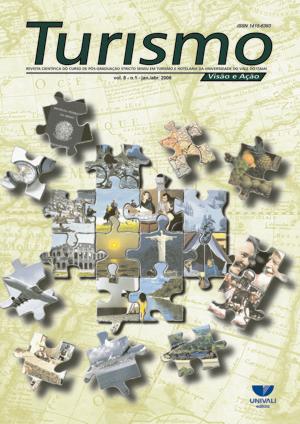The importance of Geography for Tourism: An analysis of the Concept of Risk
DOI:
https://doi.org/10.14210/rtva.v8n1.p121-128Abstract
This work shows the contribution of Geography to studies in the area of planning tourism activities. It presents and discusses the concept of risk, which has been a feature of geographical studies since the end of 1990s The catastrophe of December 26th 2004, which affected South Asia, a region with strong tourist attractions, reinforces the importance of this concept, as a component of studies in the area of planning tourism activities, as well as studies on research methods and representation, linked to the understanding, disclosure and evaluating of the scope and possible consequences of environmental risks, at various levels. Thus, the reading, analysis and interpretation of diagrams, charts and maps, satellite images and aerial photographs, should form part of the training of tourism experts interested in planning tourism activities, at local or regional level. Key words: Tourism. Risk. Geographical Methods. Tourism StudiesDownloads
Download data is not yet available.












